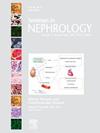使用患者报告的结果和体验指标评估肾脏病学中的医疗设备。
IF 3.5
3区 医学
Q2 UROLOGY & NEPHROLOGY
引用次数: 0
摘要
将患者的观点纳入医疗器械开发的整个产品生命周期,对于确保以患者为中心的评估至关重要。通过优先考虑以患者为中心的评估,医疗器械开发商可以更好地满足患者需求,提高医疗解决方案的质量和有效性。患者报告结果 (PRO)、患者偏好信息 (PPI) 和定性调查是纳入和放大患者声音的方法。在肾脏病学领域,与其他临床领域不同的是,在医疗设备开发过程中对患者报告结果(PROs)、患者偏好信息(PPI)和定性调查的利用明显不足。因此,患者在器械开发过程中的参与度明显不足,导致这些器械对患者福祉和功能的影响在很大程度上未得到探索。许多具有前瞻性思维的计划以及食品药品管理局关于使用PROs和PPI的指南正在有效地将PROs引入肾脏病设备的开发中。有许多资源可以帮助研究人员选择高质量的 PROs。使用PROs和PPI支持监管决策有其独特的考虑因素,包括适合目的、感兴趣的概念、使用环境和最小负担选择。肾脏病学中以患者为中心的倡议的快速发展将有助于确保医疗设备满足肾病患者的需求并提高医疗质量。本文章由计算机程序翻译,如有差异,请以英文原文为准。
Evaluating Medical Devices in Nephrology Using Patient-Reported Outcome and Experience Measures
Incorporating the patient's perspective into the entire product life cycle of medical device development is paramount for ensuring patient-centric evaluation. By prioritizing patient-centric evaluation, medical device developers can better address patient needs and enhance the quality and effectiveness of health care solutions. Patient-reported outcomes (PROs), patient preference information (PPI), and qualitative inquiry are methodologies to incorporate and amplify the patient's voice. In nephrology, unlike in other clinical domains, the utilization of PROs, PPI, and qualitative inquiry in medical device development has been notably sparse. Consequently, a glaring absence of patient involvement in the development of devices leaves the impact of these devices on patient well-being and functionality largely unexplored. Many forward-thinking programs as well as Food and Drug Administration guidance on the use of PROs and PPI are effectively bringing PROs into nephrology device development. Many resources exist to help researchers select high-quality PROs. There are unique considerations for using PROs and PPI to support regulatory decision-making, including fit-for-purpose, concepts of interest, context of use, and least burdensome selection. The rapid evolution of patient-centric initiatives in nephrology will serve to ensure that medical devices meet the needs of people with kidney disease and improve the quality of care.
求助全文
通过发布文献求助,成功后即可免费获取论文全文。
去求助
来源期刊

Seminars in nephrology
医学-泌尿学与肾脏学
CiteScore
5.60
自引率
0.00%
发文量
27
审稿时长
6-12 weeks
期刊介绍:
Seminars in Nephrology is a timely source for the publication of new concepts and research findings relevant to the clinical practice of nephrology. Each issue is an organized compendium of practical information that serves as a lasting reference for nephrologists, internists and physicians in training.
 求助内容:
求助内容: 应助结果提醒方式:
应助结果提醒方式:


